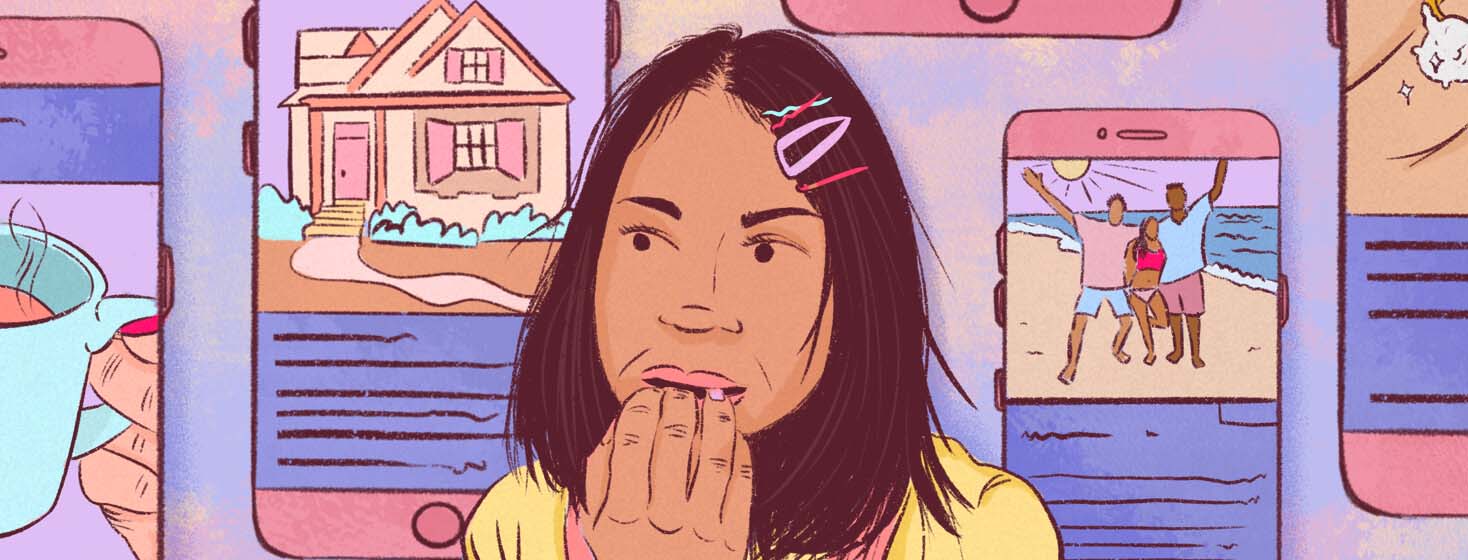Living with the Fear of Missing Out
FOMO stands for fear of missing out. FOMO triggers emotions like loneliness for everyone. But for someone with psoriatic arthritis and chronic pain, it can quickly become a doubly painful situation. Either it makes you feel lonely, or it pushes you to go beyond your healthy boundaries.
I feel a lot of pressure to keep up with peers and friends. It can be challenging to keep up during PsA flares when I want to say 'no' to plans or be less responsive to texts. The pressure was a lot worse when I was in high school and college, and has calmed down a little since entering the workforce. But I still feel FOMO strongly at times.
Managing FOMO and putting yourself first
Having lived with psoriatic arthritis for years, I've learned two important things about balancing my condition and relationships. The first is that I couldn't get too hung up on having to sit out from activities. And the second is that not all friends are forever friends, which is a part of life for most people.
I've come to accept that part of living with a chronic illness is that sometimes I'm going to have to sit out of things. While there are times it's worth pushing my boundaries for special occasions, there are also times I need to put my health first and rest. Overdoing it can cause a lot more pain and fatigue than you initially were dealing with, and it's (usually) not worth it.
Surround yourself with positivity.
When I do need to miss out, I make an effort to focus on the things I can enjoy, such as my favorite hobbies. I also try not to let myself feel lonely and left out, especially when I'm struggling with my mental health. While this may sound like a drastic step, I deleted an app off my phone that was a FOMO trigger.
I said goodbye to Snapchat, and I haven't looked back. It was fun to see what my friends are up to, but it quickly triggered negative feelings for me. Instead, I turned my attention to Instagram, where I could like pictures of my friends going about their lives and then focus on things centered around my hobbies, art, and other things I enjoy.
Some friends are short-term
It's no secret that living with arthritis and chronic pain will teach you who your real friends are. Not too long ago, I would push myself to go out as much as possible. I was always worried that saying 'no' to plans would lead to being forgotten or left behind over time. Eventually, that did happen when I went through some awful flares and had to cancel plans and stop attending my usual activities. Looking back, I don't regret that decision: it wouldn't have been worth pushing myself over the edge to keep up.
While it did hurt to lose others, the experience taught me about different friendships. I discovered I had friends who were short-term and friends who were there for the long haul. And both are valid friendships! There are friends who you will have just because you attend the same church, work at the same office, or go to school together. Realizing this made me feel less upset about seemingly losing friends left and right during flares.
My few forever friends stuck by me, even during the awful flares. Sure, there were times things were very quiet because I had to say no. But I always knew who my real friends were based on something my mum always said: real friends can go months without talking to each other but can pick back up as if no time passed at all.
It's a tricky balance
I will be the first to admit that it's hard to maintain your relationships while dealing with arthritis. Sometimes, you have to say 'no' to plans for self-preservation. Other times, you have to push past it for the sake of your loved one.
It's a complex and deeply personal balance. Sometimes, you feel like you won't win. And that's ok. You need to do what you need to do to take care of your health- physical, mental, and emotional.

Join the conversation